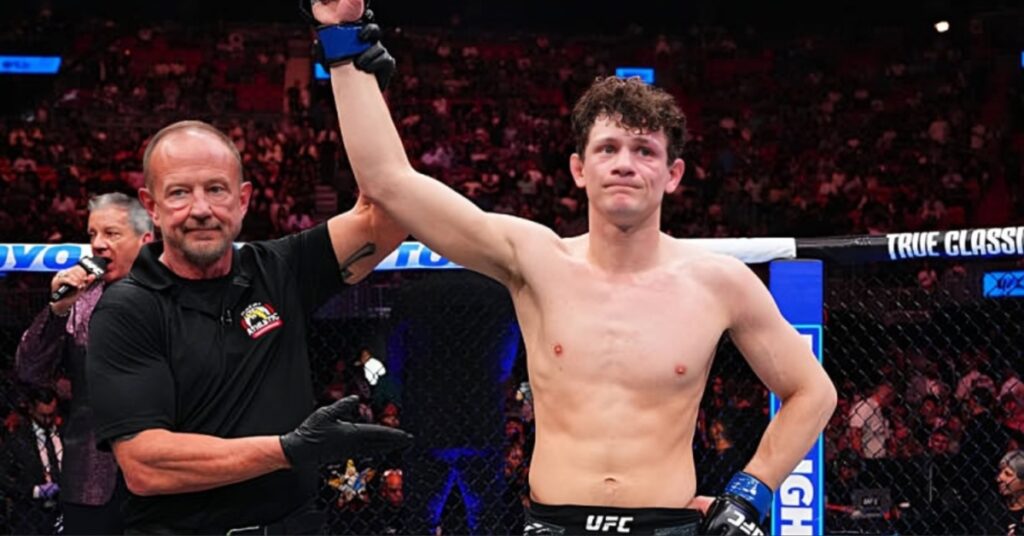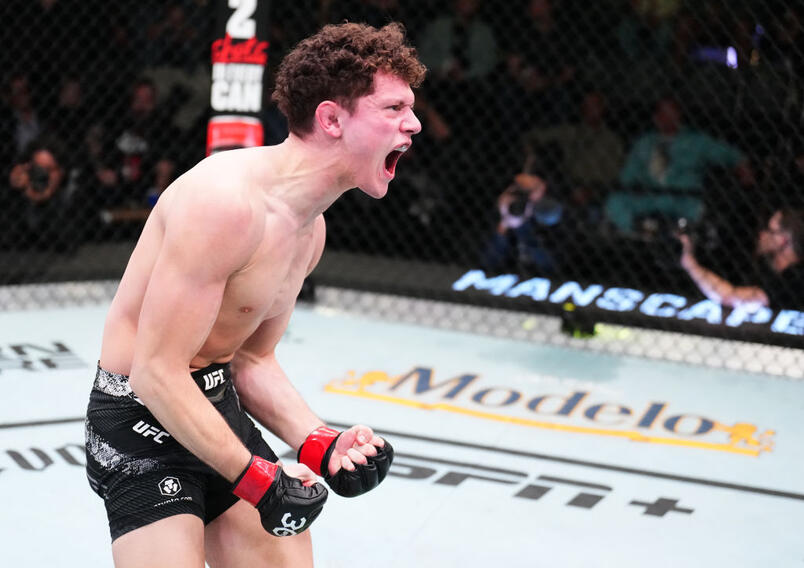The numbers that Chase Hooper threw around on social media weren’t just fighter complaining. The 25-year-old athlete walked fans through exactly why that UFC paycheck disappears faster than a knockout punch.
Chase Hooper explains Why UFC Pay is Even Lower Than People Think
Chase Hooper laid it out simple. Ten percent goes to coaches, fifteen percent to managers, thirty percent to federal taxes, plus another five percent for state taxes if you live somewhere that takes a bite. That’s sixty percent gone before the fighter touches a dollar.
The math gets worse when you realize these percentages stack on the gross amount. If Hooper makes $100,000 for a fight, his coach takes $10,000, his manager grabs $15,000, and Uncle Sam collects $35,000 between federal and state taxes. That leaves $40,000 from a six-figure payday.
“People don’t realize how quick it goes. 10% to the coaches, 15% to manager, 30% to federal taxes, and another 5% to state income tax if you have that. That’s 60% of the money gone before you even touch it””
Training camps eat into what’s left. Professional fighters spend between $8,000 to $12,000 preparing for each bout, covering gym fees, sparring partners, travel, supplements, and specialized coaching. Some elite camps cost even more – Khabib Nurmagomedov reportedly spent $1 million on Islam Makhachev’s title fight preparation.
The coaching fees Hooper mentioned align with industry standards. Most gyms charge between 5-10 percent of a fighter’s purse for training camp services. The fifteen percent management fee he referenced actually represents the lower end – some managers charge up to twenty percent of earnings.
Hooper pointed out something that stings: NFL agents can only charge a maximum of three percent under league regulations. The contrast shows how different the business models work when fighters have no union protection.
“Management if you’re already in the UFC is an absolute scam. They rarely provide enough value to the fighters. Thankfully I don’t have a manager and am able to save that extra money, but most guys do. It’s wild too considering the max a manager can charge in the NFL is 3%”
Sean O’Malley found a solution that Hooper also uses. O’Malley’s coach Tim Welch handles his management duties, eliminating that fifteen percent cut. Hooper does the same thing, avoiding management fees by having his coach handle those responsibilities.
“It’s a scam. O’Malley is a perfect example of why. His coach does his management and he’s one of the biggest names in the sport and gets favorable matchups because UFC likes him and saw his potential, no extra help needed besides him winning fights.”

The tax situation creates additional headaches. MMA fighters work as independent contractors, meaning no automatic withholdings. They receive full payouts and must set aside money for taxes themselves. Many fighters use business deductions for gym fees, equipment, travel, and medical expenses, but those require proper documentation.
Entry-level UFC fighters face tougher math. Someone making $12,000 to show and $12,000 to win ($24,000 if they win) could end up with less than $10,000 after all expenses. That’s why performance bonuses matter so much – those extra $50,000 checks can double what a fighter actually takes home.
The sponsorship situation makes it worse. Before the UFC’s exclusive apparel deal, fighters could land individual sponsors worth thousands per fight. Now they get small payments from the UFC’s official partners instead.
Hooper mentioned he’s “been doing pretty well on two fights per year” and made “more than a lot of people make in a year getting beat up last weekend.”
The reality check extends beyond just money. Fighters pay for their corner’s travel and accommodation. They handle medical expenses not covered by the UFC. They buy their own training equipment and supplements. The costs add up quickly for someone technically classified as an independent contractor.



